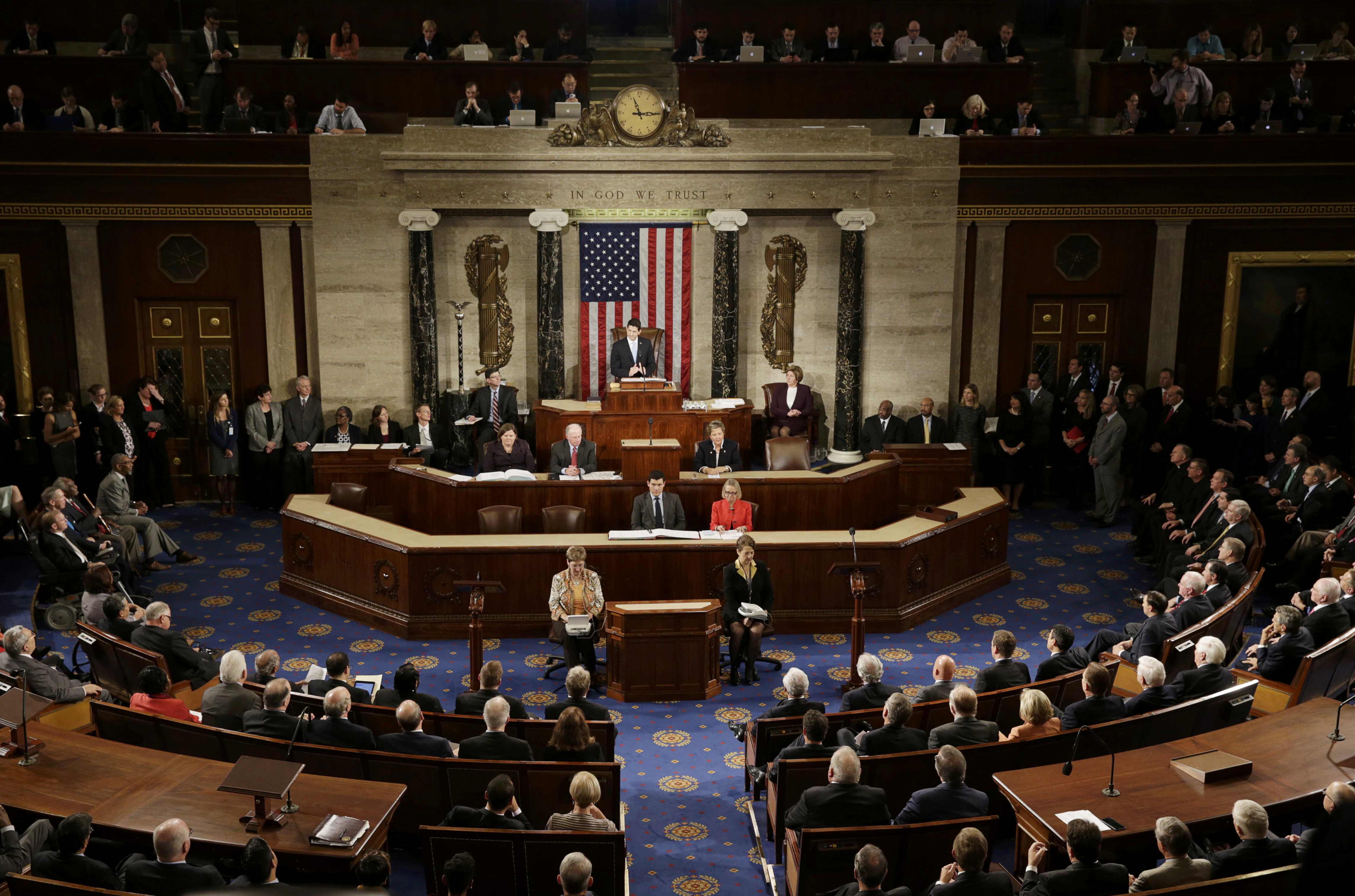Table Of Content

The primary role of the Speaker of the House is to preside over the House of Representatives. The speaker is chosen by majority vote of that body, usually along strictly partisan lines. 24Mike Johnson was elected Speaker on October 25, 2023, to fill the vacancy caused by the removal of Speaker McCarthy from the Speakership pursuant to H. Ryan was elected Speaker on October 29, 2015, to fill the vacancy caused by the resignation of Speaker Boehner.
Jim Jordan fails to win House speakership on first ballot
The GOP won big that year behind the Electoral College landslide of Ronald Reagan, taking control of the Senate and gaining enough seats in the House to give Reagan a working majority of Republicans and conservative Democrats. Northern and liberal Democrats became frustrated with O'Neill in subsequent years, even as O'Neill's comfy personal relationship with Reagan enabled a modus operandi between the branches. O'Neill finished a full decade in power before retiring in declining health after the 1986 elections had restored Democratic control in the Senate. Though it holds immense power, the House speakership seems like the worst job in Washington these days. Current Speaker John Boehner wants to leave, but after House Majority Leader Kevin McCarthy suddenly dropped out of the contest, it could be anybody's race.
House Speaker kicks Pierre Poilievre out of Commons over unparliamentary comments
House of Representatives, who is elected by the majority party to lead the House. The speaker presides over debate, appoints members of select and conference committees, establishes the legislative agenda, maintains order within the House, and administers the oath of office to House members. The individual in this office is second in the line of presidential succession, following the vice president. At the time, he was still the party's No. 2, but longtime GOP leader Bob Michel was retiring, and Gingrich masterminded the "Contract with America" and other media strategies that focused voter anger on the Democrats. Leading his people to the promised land after 40 years in the minority made Gingrich a kind of Moses, but only for a brief moment.
December 1833
His rank and file demanded confrontation with Clinton, which resulted in government shutdowns in late 1995 and early 1996. These backfired, helping Clinton revive his own popularity and win a second term, while Republicans saw their margin of control narrow in the House. In 1997, several members of Gingrich's leadership team were involved in an abortive coup d'etat against him.
Jordan sent the conference home for the weekend following Friday’s party votes, and lawmakers said he planned to use the time to speak with his opponents and try to win them over. Only four Republicans can break with the pack in order for a GOP speaker to be seated. When McCarthy was booted from the speaker’s office, he lost just eight Republicans of his 221-member conference. McCarthy had been House speaker since January, when he won the gavel after 15 rounds of balloting.
This was supposed to be Kevin McCarthy's moment. Instead, GOP chaos reigns
First, they are the most visible and authoritative spokesperson for the majority party in the House. Speakers articulate an agenda and explain legislative action to other Washington officials as well as the public. They oversee House committee assignments and collaborate with the powerful House Rules Committee to structure floor debate. Jordan or any other Republican speaker candidate can only afford to lose four GOP votes when the House votes for speaker, if all members are voting, because winning a speaker vote requires a majority of the full House.
Hastert was speaker through the last two Clinton years and first six of the George W. Bush presidency. But he voluntarily resigned after the GOP lost badly in the 2006 midterms, a defeat Bush called "a thumpin' " at the time. Whichever party holds the majority on the House side of the Capitol typically elects its leader as the speaker on the first day of the new Congress. Each party nominates its leader and the majority has the most votes and prevails, even if a few members of the majority party defect or vote "present" or just don't show up. But beginning with the first ballot for speaker on Tuesday, at least 19 Republicans voted for someone other than their party nominee, Kevin McCarthy of California. That meant McCarthy did not have enough votes to be speaker, and neither did anyone else.
But this time around several Democrats have indicated they would cross the aisle to support Johnson and frustrate Greene & Co. if it came to a vote. Democratic leaders have indicated they are open to this, and it essentially repeats the strategy that allowed Johnson to pass the Ukraine portion of the aid bill earlier this month. Two colleagues had spoken up to say they would join Greene in such a vote, giving her enough to defeat the speaker if all the chamber's Democrats voted to do the same. That's what the Democrats did when a motion to vacate the chair ousted the last Republican speaker, Kevin McCarthy, last fall. The first official building housing the offices of House members was opened in 1908 and called the House Office Building. It stands as a monument both to the preeminence of the speakership and the impermanence of power.
December 1863
Who are the Republican House speaker candidates who've run and dropped out? Here's a full list - CBS News
Who are the Republican House speaker candidates who've run and dropped out? Here's a full list.
Posted: Wed, 25 Oct 2023 07:00:00 GMT [source]
Prior to the GOP's 40-year sentence as the minority party, several of its speakers had risen to the top rung largely on their personal popularity among their colleagues. One was Joseph Martin of Massachusetts, who led the party in the House during two brief interludes of majority status after World War II. Both lasted only the minimum two years, the first ending with Democratic Harry S. Truman's surprise White House win in 1948. Martin was back four years later when Eisenhower was first elected president in 1952, but that tour at the top was cut short by his party's sharp losses two years later. Like Johnson an era later, Hastert was a relatively quiet member of the leadership who enjoyed goodwill generally in the rank and file.
From early in its existence, the speaker's primary function had been to keep order and enforce rules. Furthermore, when no candidate received an Electoral College majority in the 1824 presidential election, causing the president to be elected by the House, Speaker Clay threw his support to John Quincy Adams instead of Andrew Jackson, thereby ensuring Adams' victory. Following Clay's retirement in 1825, the power of the speakership once again began to decline, despite speakership elections becoming increasingly bitter. As the Civil War approached, several sectional factions nominated their own candidates, often making it difficult for any candidate to attain a majority. In 1855 and again in 1859, for example, the contest for speaker lasted for two months before the House achieved a result.
In 1997, several Republican congressional leaders tried to force Speaker Newt Gingrich to resign. However, Gingrich refused since that would have required a new election for speaker, which could have led to Democrats along with dissenting Republicans voting for Democrat Dick Gephardt (then minority leader) as speaker. After the 1998 midterm elections where the Republicans lost seats, Gingrich did not stand for re-election. The next two figures in the House Republican leadership hierarchy, Majority Leader Richard Armey and Majority Whip Tom DeLay chose not to run for the office.

If all Democrats vote for the Democratic leader, Rep. Hakeem Jeffries of New York, that means Republicans must find 218 votes from their conference for whomever they put up. On the other hand, when the speaker and the president belong to opposite parties, the public role and influence of the speaker tend to increase. As the highest-ranking member of the opposition party (and de facto leader of the opposition), the speaker is normally the chief public opponent of the president's agenda. In this scenario, the speaker is known for undercutting the president's agenda by blocking measures by the minority party or rejecting bills by the Senate.
Ryan also had a strained relationship with then-President Donald Trump, with whom he had a falling out during the fall 2016 campaign. In April 2018, Ryan said he would not serve another term and left as the party was losing its majority that fall. An election for speaker took place on January 3, 2021, at the start of the 117th Congress, two months after the 2020 elections in which Democrats won a slim majority of the seats. An election for speaker took place on January 6, 2009, on the opening day of the 111th Congress, two months after the 2008 elections in which Democrats won a majority of the seats. Nancy Pelosi received a majority of the votes cast and was re-elected speaker. An election for speaker took place on January 4, 2005, on the opening day of the 109th Congress, two months after the 2004 elections in which Republicans won a majority of the seats.
Paul Davis Ryan (born January 29, 1970) is an American politician who served as the 54th speaker of the United States House of Representatives from 2015 to 2019. A member of the Republican Party, he was the vice presidential nominee in the 2012 election with Mitt Romney, but they lost to incumbent President Barack Obama and Vice President Joe Biden. In 1989 Speaker Jim Wright of Texas resigned under pressure following revelations about a book deal the House Ethics Committee saw as circumventing fundraising rules. Longworth's successor, John "Cactus Jack" Garner of Texas, left the office after just over a year to be Franklin Roosevelt's first vice president. Ryan, then just 45, was the youngest speaker in nearly 150 years but had already been party's vice presidential nominee on the 2012 ticket. Once he had Boehner's job, however, he experienced much the same internal strife.
He was chairman of the Rules Committee and he determined which bills and amendments would be allowed on the floor and which members would be permitted to speak. McCarthy had resisted this as it would essentially put his job on the line on a daily, even hourly, basis. But in his last rounds of attempting to secure votes, he was reported to have given in even on this issue. For some of McCarthy's critics, a major motivation has been the decentralization of authority in the chamber. They want less reliance on the leadership and more empowerment of the committee chairs.

No comments:
Post a Comment